Blog
Suzuki Motorcycle India Accelerates into EV Market with First Electric Two-Wheeler
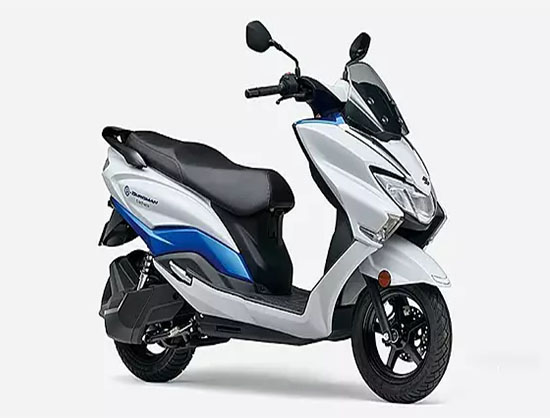
Suzuki Motorcycle India, a significant player in the Indian automotive market, is venturing into the electric vehicle (EV) segment with its first electric two-wheeler. This move comes as part of a broader strategy to align with global trends and meet the rising demand for sustainable transportation solutions. The company’s executive vice president for sales and marketing, Devashish Handa, revealed that the product development is already at a reasonably advanced stage. However, despite the progress in development, Suzuki has yet to finalize a timeline for the launch. This delay stems from the need to iron out commercial aspects such as pricing and product placement, which are crucial for the product’s market success.
Suzuki’s approach to product development is driven by a global perspective. All products are designed for international markets, ensuring they meet diverse market needs and leverage competitive manufacturing processes. This global focus helps Suzuki introduce products that are not only innovative but also competitive on a global scale. Handa emphasized that Suzuki’s manufacturing strategy is centered on competitiveness, which is a significant factor in determining the success of new product launches, including the upcoming electric two-wheeler.
The decision to develop an electric two-wheeler is also influenced by the growing demand for EVs in India, particularly in the scooter segment. According to Handa, the demand for electric scooters has reached an inflection point, with penetration levels nearing 20%. This surge in demand indicates a significant shift in consumer preferences towards more sustainable and eco-friendly modes of transportation. The increasing popularity of electric scooters in India aligns with global trends towards electric mobility, driven by environmental concerns and government policies promoting green energy solutions.
Currently, Suzuki Motorcycle India is operating at its full installed capacity of one million units per year. This capacity reflects the company’s strong market presence and ability to meet substantial demand. However, the high demand for Suzuki’s products has prompted the company to consider expanding its production capacity. By adding new capacity, Suzuki aims to cater to the growing market demand and ensure the timely delivery of its products to customers.
In May, Suzuki Motorcycle India reported a significant increase in sales, underscoring the brand’s strong market position. The company’s sales grew by 37%, reaching 92,032 units compared to 67,040 units during the same month the previous year. This impressive growth in sales reflects the increasing demand for Suzuki’s products and the company’s ability to capture a significant share of the market.
Suzuki’s product portfolio in India includes a range of both imported and domestically manufactured bikes and scooters. Some of the popular models include the Hayabusa, V-Strom 800DE, Gixxer 250, Access, and Burgman. These models have garnered a strong following among Indian consumers, contributing to the company’s robust sales performance. The introduction of an electric two-wheeler is expected to further enhance Suzuki’s product lineup and appeal to a broader customer base seeking sustainable transportation options.
In conclusion, Suzuki Motorcycle India is poised to make a significant impact in the electric vehicle market with its first electric two-wheeler. While the company is still finalizing the commercial aspects of the product, the advanced stage of development and growing demand for EVs in India signal a promising future. Suzuki’s commitment to designing products for global markets and maintaining competitive manufacturing processes positions the company well for success. As the market for electric scooters continues to expand, Suzuki’s entry into this segment is likely to strengthen its market presence and contribute to its long-term growth.
Article By
Blog
MG’s Cyberster: India’s Upcoming Premium Electric SUV Set to Launch in July 2025
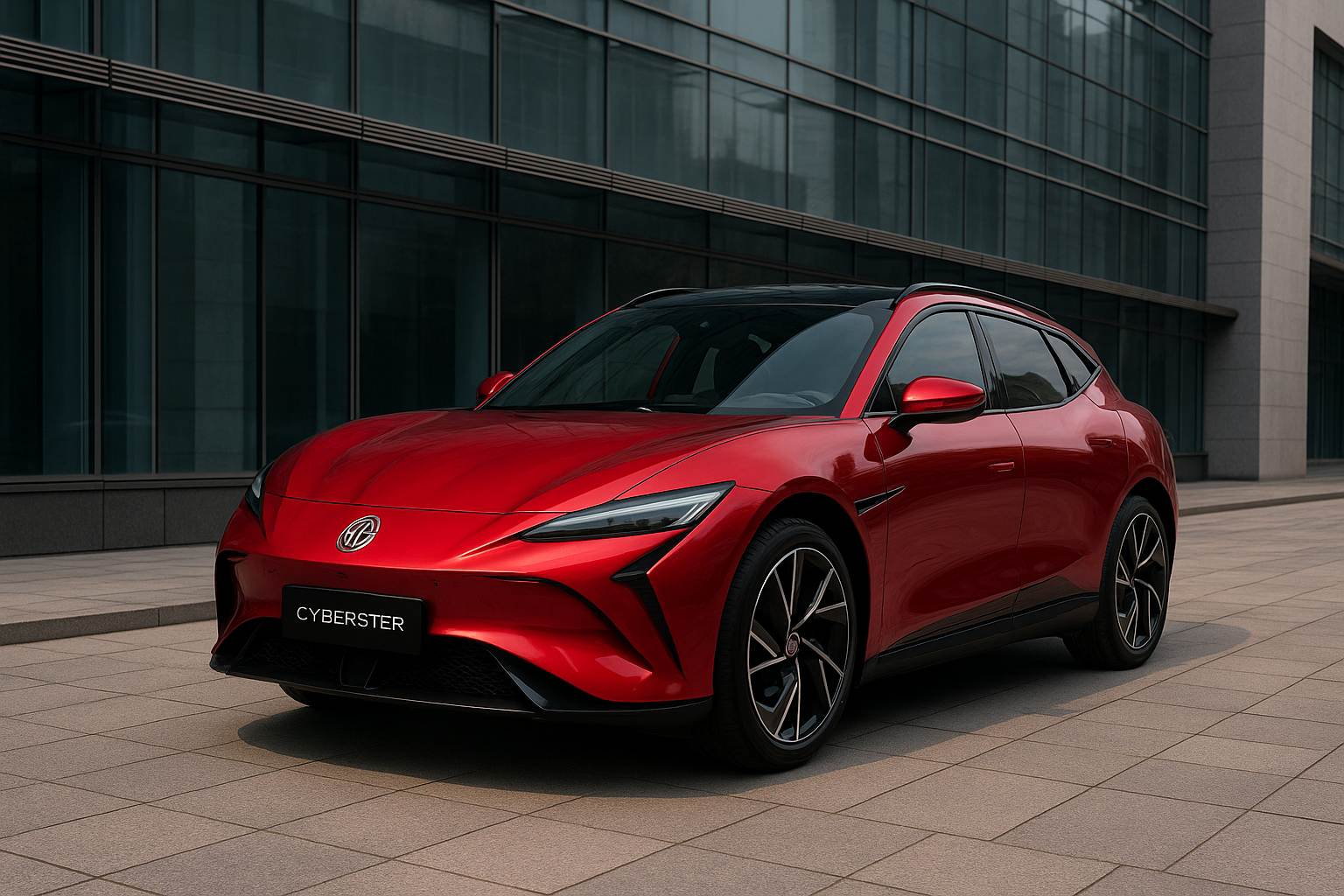
A Bold Step Into India’s Luxury EV Market
So, MG is about to bring out something pretty cool — the Cyberster, a premium electric SUV, expected to launch around July 2025. It’s their way of stepping up in India’s electric vehicle game and offering something that’s not just green, but also stylish and packed with tech.
EVs are getting popular here, and MG wants to be part of that wave, especially for folks who want a good-looking, comfy ride that’s loaded with modern features.
Striking Design Meets Cutting-Edge Technology
We don’t have all the info yet, but the Cyberster looks sharp. Think sleek and sporty, something that’ll catch eyes on the road.
Inside, expect lots of screens, smart features, and safety tech — basically, everything you’d want to make your drive smooth and fun. Whether it’s a quick city run or a weekend escape, this car’s aiming to make every trip enjoyable.
Performance That Packs a Punch
If you’re paying for a premium electric SUV, you want it to perform, right? While details are still under wraps, MG usually doesn’t disappoint. Expect a good driving range and enough power to make driving fun.
And with fast charging, you won’t be stuck waiting around forever — a big plus for busy folks.
What the Cyberster Means for Indian Consumers
This car means more choice for buyers who want a premium EV. The market is heating up, and it’s great because it gives you options that fit your style and budget.
MG is known for giving good value, so this might be a premium ride without the crazy premium price tag.
Growing Competition: A Win for Buyers
More companies entering the EV space means the competition’s getting fierce — Tata, Mahindra, Hyundai, and now MG all want your attention.
That means better cars, better prices, and more charging stations popping up, making EVs easier to own.
MG’s Vision for India’s EV Future
The Cyberster is just the start for MG. They’re clearly aiming to be a big player in India’s EV scene by giving buyers stylish, tech-packed cars.
As India moves toward greener transport, cars like this will help make electric vehicles the new normal.
Article By
Sourabh Gupta
Blog
India’s EV Market Heats: More Players, More Competition
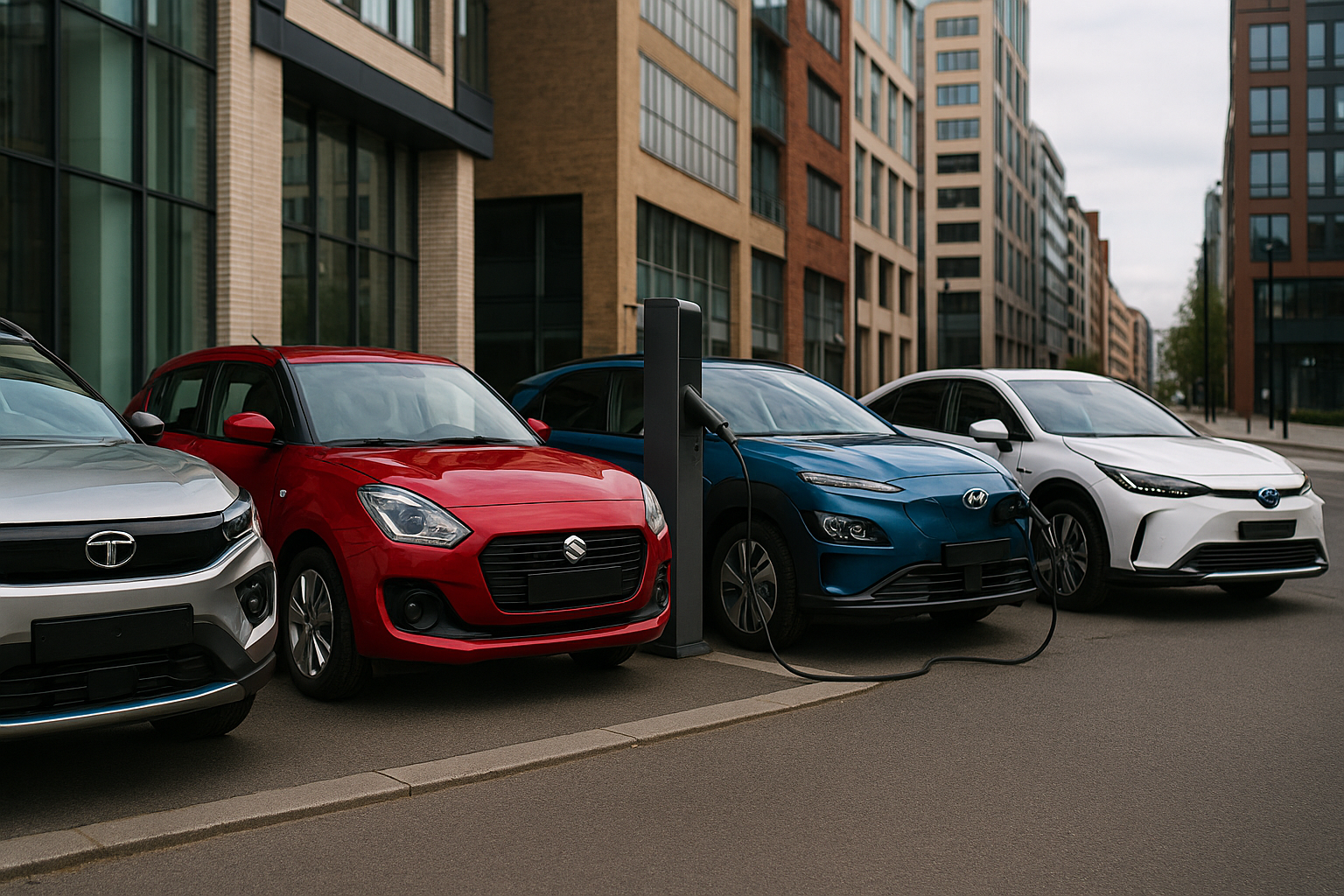
The Electric Vehicle Battle Is Just Getting Started
You know how things are changing fast with electric vehicles here in India? Well, it’s no longer just a couple of companies in the game. Tata and Mahindra have been leading for a while, but now Maruti, Toyota, and Hyundai are jumping in too. It’s turning into a proper race, and that’s great news for anyone thinking about buying an EV.
More players mean more choices, and when companies compete, it usually means better deals and cooler cars for us.
New Entrants Bring Fresh Energy
Maruti Suzuki is like the go-to brand for most Indian families because their cars are affordable and reliable. Now, if they start selling EVs, it’s going to make electric vehicles a lot more reachable for everyday folks.
Then you have Toyota and Hyundai, which have been working on electric cars globally for years. They’re bringing that know-how to India, which means better technology and cars designed to handle our roads and conditions.
This fresh blood is going to push everyone to do better, which is a win for all of us.
What This Means for Consumers
For buyers, this is the best time to consider an EV. You’ll get a wider choice of vehicles — from simple and affordable models to fancy ones packed with features.
Also, with so many companies competing, expect better batteries that last longer, faster charging times, and prices that won’t scare you away.
Charging stations will become more common, making it easier to own and use an EV without stress.
Challenges for Established Players
Tata and Mahindra have done well so far, but now the heat’s on. They’ll need to keep improving their cars and customer service to stay ahead.
More competition means prices might get friendlier, and cars will keep getting better, which is good news for everyone.
The Road Ahead: A Win for India’s Green Future
All this competition will speed up EV adoption, which means cleaner air and less pollution.
With more companies investing in EVs, we’ll see more charging points, better batteries, and more jobs related to green technology.
The future looks electric, and it’s shaping up to be an exciting ride.
Article By
Sourabh Gupta
Blog
Tata Motors Sets Sights on Dominating 50% of India’s EV Market
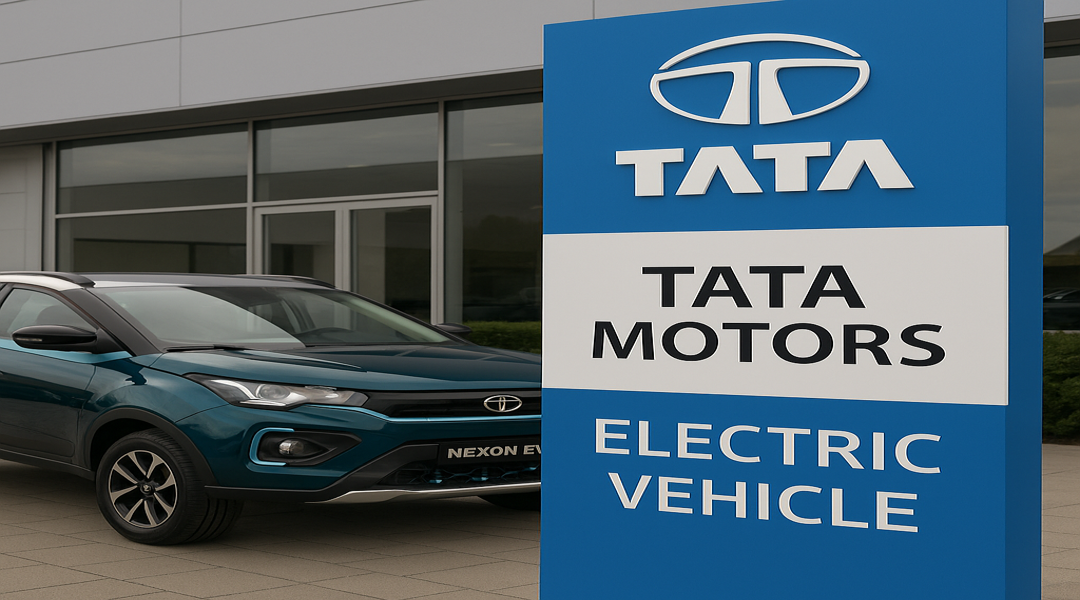
A Bold Ambition in a Growing Industry
Tata Motors isn’t just aiming to be in the EV race — they want to lead it. A recent ET Auto report says Tata wants to grab half of India’s electric vehicle market, which is a pretty big deal.
India’s EV scene is growing fast. More people are thinking about electric cars because petrol prices keep climbing, and folks want cleaner air. With all this happening, Tata’s shooting for the top spot, wanting to hold a massive share of the market.
Where Tata Motors Stands Today
Right now, Tata is the go-to name when it comes to EVs in India. The Nexon EV is one of the best-selling electric SUVs in the country. They’ve also got other models like the Tiago EV and Tigor EV that cover different budgets and needs.
But Tata knows it can’t just sit back and relax. Other brands like Mahindra, MG, and Hyundai are also pushing hard. Tata’s got to keep coming up with new stuff and get better if they want to stay ahead.
How Tata Plans to Achieve Its 50% Goal
So, how do they plan to take over half the market? They’ve got a few things lined up:
Expanding Its EV Lineup
Tata’s working on some cool new electric cars like the Harrier EV, Curvv EV, and the fancy Avinya. These options will give customers more choices, whether they prefer something small and practical or large and luxurious.
Building More Charging Stations
One of the biggest worries about EVs is charging. Tata’s working with Tata Power to set up more chargers across cities and towns. The easier it is to charge, the more people will want to buy EVs.
Making Batteries in India
Batteries are the priciest part of EVs, and importing them adds to the cost. Tata wants to make batteries right here in India, which should help bring prices down.
Going After Fleets and Government Buyers
Tata’s not just focusing on people buying cars for themselves. They’re also selling EVs to taxis, delivery companies, and government fleets. That’s a smart move because these buyers buy in bulk.
Challenges Ahead
It won’t be a smooth ride, though. Tata still has some bumps to cross:
- Battery supply might not always keep up with demand.
- Other companies are catching up fast.
- Not all towns have enough charging points yet.
- Convincing people outside cities to switch to EVs takes time.
The Road Ahead
Tata wants to own half of India’s EV market, and while that’s a huge goal, they have the right plan and the brand to pull it off. For buyers, this means better cars and more choices soon. For India, it’s a cleaner, greener future.
Article By
Sourabh Gupta
-
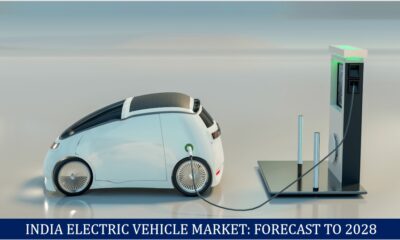
 Blog6 months ago
Blog6 months agoIndia’s Electric Vehicle Market Forecast to 2028 A Rapidly Growing Industry
-
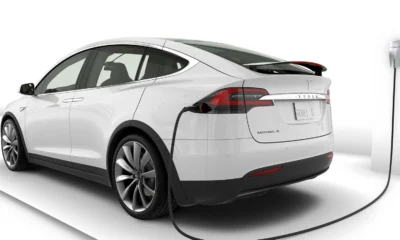
 Blog12 months ago
Blog12 months agoTop 10 Electric Vehicles of 2024: A Comprehensive Guide
-
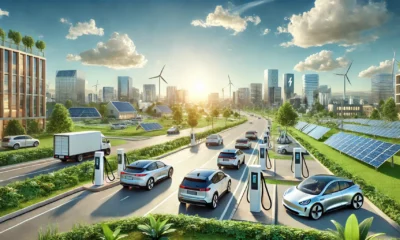
 Blog1 year ago
Blog1 year agoImpact of Electric Vehicles on the Environment and Pollution
-
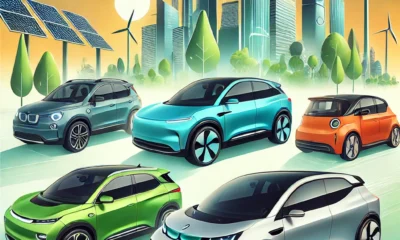
 Blog1 year ago
Blog1 year agoTop 5 best electric vehicles Under $30,000: Affordable Choices for 2024
-

 EV news6 months ago
EV news6 months ago2025 Might Be the Time of EVs in India, Drove by SUV Dispatches
-
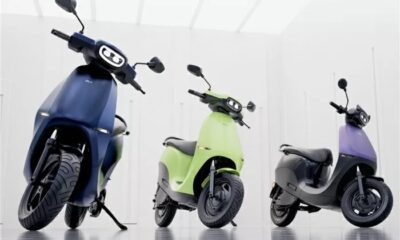
 EV news9 months ago
EV news9 months agoOla Electric Offers Massive Festive Discounts on Scooters Starting at ₹50,000
-
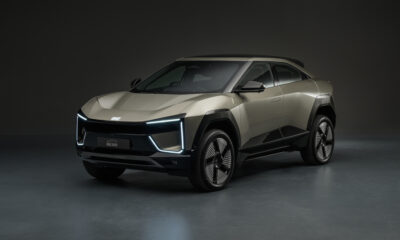
 Blog6 months ago
Blog6 months agoMahindra BE 6 An Intense Move toward the Fate of Electric Versatility
-
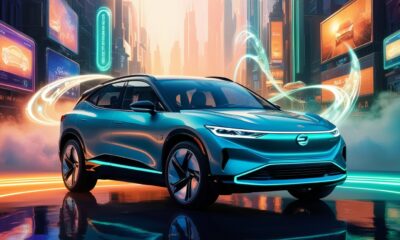
 Blog1 year ago
Blog1 year agoEV Charging Technology: Leading the Electric Vehicle Innovations in 2024




